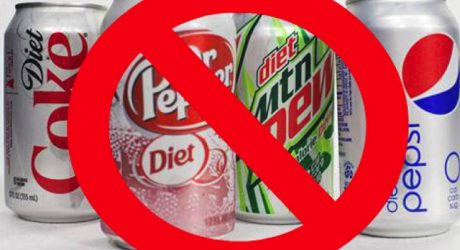In a significant move to safeguard the well-being of students, the Eastern Regional Education Directorate has taken a proactive stance by prohibiting the sale of sugar-sweetened beverages and fizzy drinks in schools. This crucial decision follows a shocking revelation of health consequences observed among schoolchildren in the region.
During a joint press conference held in Koforidua, representatives from the Eastern Regional Education and Health Directorates emphasized the pressing nutritional challenges faced by students. Eric Sakyi, the Regional Head of the Inspectorate at GES, highlighted the introduction of fruit days in various schools to encourage parents to provide nutritious fruits to supplement their children’s diets.
To address the growing concerns surrounding the health of schoolchildren, the Eastern Regional Health and Education directorates, in collaboration with UNICEF, have launched the Nutrition-friendly School Initiative (NFSI). This initiative aims to foster healthy eating habits among students by implementing supportive measures in 130 selected basic schools across 26 municipalities and districts.
Dr. Winfred Ofosu, the Eastern Regional Health Director, explained during the press conference that while there has been a decline in malnutrition among children under five years old over the years, there has been a significant increase in malnutrition among schoolchildren and adolescents. This troubling trend points to poor dietary practices, including the consumption of high-sugar and high-fat diets, sweets, and other nutritionally inadequate foods. Skipping meals and physical inactivity at both school and home were identified as major contributory factors to the rising prevalence of Non-Communicable Diseases (NCDs).
The Nutrition-friendly School initiative seeks to address these challenges by providing access to healthy and nutritious foods for students. Caterers responsible for school meals are required to develop and cook meals based on a menu chart aligned with the four-star (4****) diet. The menu chart must be prominently displayed in schools, and food should be served on well-covered tables to prevent contamination. Additionally, school authorities are urged to ensure a clean eating environment with adequate handwashing facilities.
In line with promoting healthier eating habits, the initiative encourages parents to avoid packing fizzy drinks and sugary foods/snacks in their children’s lunch boxes. Schools are encouraged to incorporate nutrition education and institute fruit and vegetable days (1-3 times a week) to promote the consumption of fresh fruits and vegetables. Moreover, a protein day should be observed once every week to encourage students to consume a variety of protein sources.
The NFSI also highlights the importance of physical activity by urging schools to provide play spaces for students’ engagement in physical activities. Physical education classes should be prioritized and incorporated into the timetable, with the inclusion of one- to two-minute aerobic exercises during lessons. Schools are encouraged to create green environments by planting fruit trees and vegetables on their compounds, not only for beautification but also as windbreakers and a source of nutritious food for consumption.
Furthermore, the Ghana Health Service and Ghana Education Service, in collaboration with Municipal and District Assemblies in the Eastern Region, have implemented various strategies and programs to improve the nutrition and health of adolescents. These initiatives encompass addressing water, sanitation, and hygiene (WASH) in schools, including the construction of toilet facilities, provision of clean water, and menstrual hygiene management. The Ghana Girls Iron Folate Tablet Supplementation (GIFTS) program aims to prevent anemia among adolescent girls, both in and out of school. Additionally, annual school deworming exercises are conducted to further enhance the well-being of students.
Through these comprehensive efforts, the Eastern Regional Education Directorate, together with its partners, is committed to creating a conducive and health-promoting environment for students in the Eastern Region. By banning sugary beverages in schools and implementing the Nutrition-friendly School initiative, they are taking a firm stance against unhealthy dietary practices and prioritizing the long-term health and well-being of students.
The decision to ban sugar-sweetened beverages recognizes the harmful effects of excessive sugar consumption on children’s health. These beverages are often loaded with added sugars, which contribute to weight gain, dental problems, and the risk of developing chronic diseases such as diabetes and heart disease. By eliminating these drinks from school premises, the Eastern Regional Education Directorate is taking a proactive step in reducing students’ exposure to these health risks.
The Nutrition-friendly School initiative goes beyond the ban on sugary beverages and encompasses a holistic approach to promoting healthy eating habits. It emphasizes the importance of providing students with access to nutritious foods and educating them about proper nutrition. By incorporating fruit and vegetable days into the school schedule, students are encouraged to consume these vital sources of vitamins, minerals, and dietary fiber. Additionally, instituting a protein day promotes a diverse and balanced diet that includes essential proteins for growth and development.
Creating a conducive environment for physical activity is another crucial aspect of the initiative. By providing play spaces and incorporating physical education into the curriculum, schools aim to promote an active lifestyle among students. Regular physical activity helps maintain a healthy weight, improves cardiovascular health, enhances cognitive function, and boosts overall well-being.
The collaboration between the Ghana Health Service, Ghana Education Service, and Municipal and District Assemblies underscores the commitment to improving the nutrition and health of adolescents in the Eastern Region. Through initiatives like addressing WASH in schools, promoting menstrual hygiene management, and implementing the GIFTS program, comprehensive support is provided to ensure the overall well-being of students. These efforts contribute to reducing malnutrition, anemia, and other health challenges commonly faced by schoolchildren and adolescents.
In conclusion, the Eastern Regional Education Directorate’s decision to ban sugary beverages in schools and implement the Nutrition-friendly School initiative reflects a proactive approach to prioritize students’ health. By promoting healthy eating habits, encouraging physical activity, and implementing comprehensive nutrition and health programs, the Eastern Region is taking significant steps to create a supportive environment that fosters the well-being and long-term health of its students. Through these collaborative efforts, a brighter and healthier future awaits the young generation of the Eastern Region.
